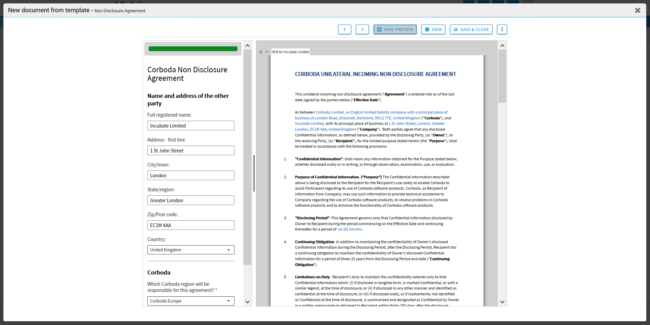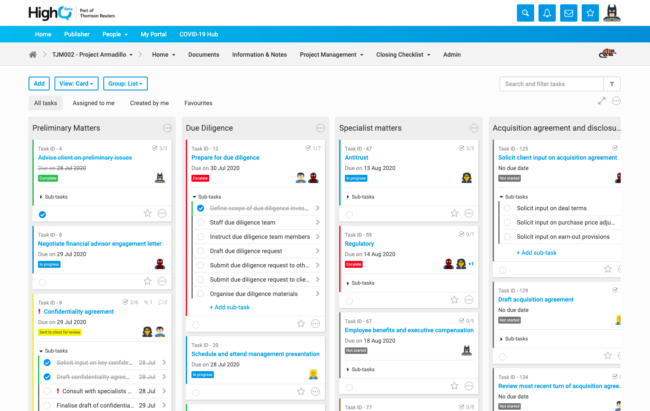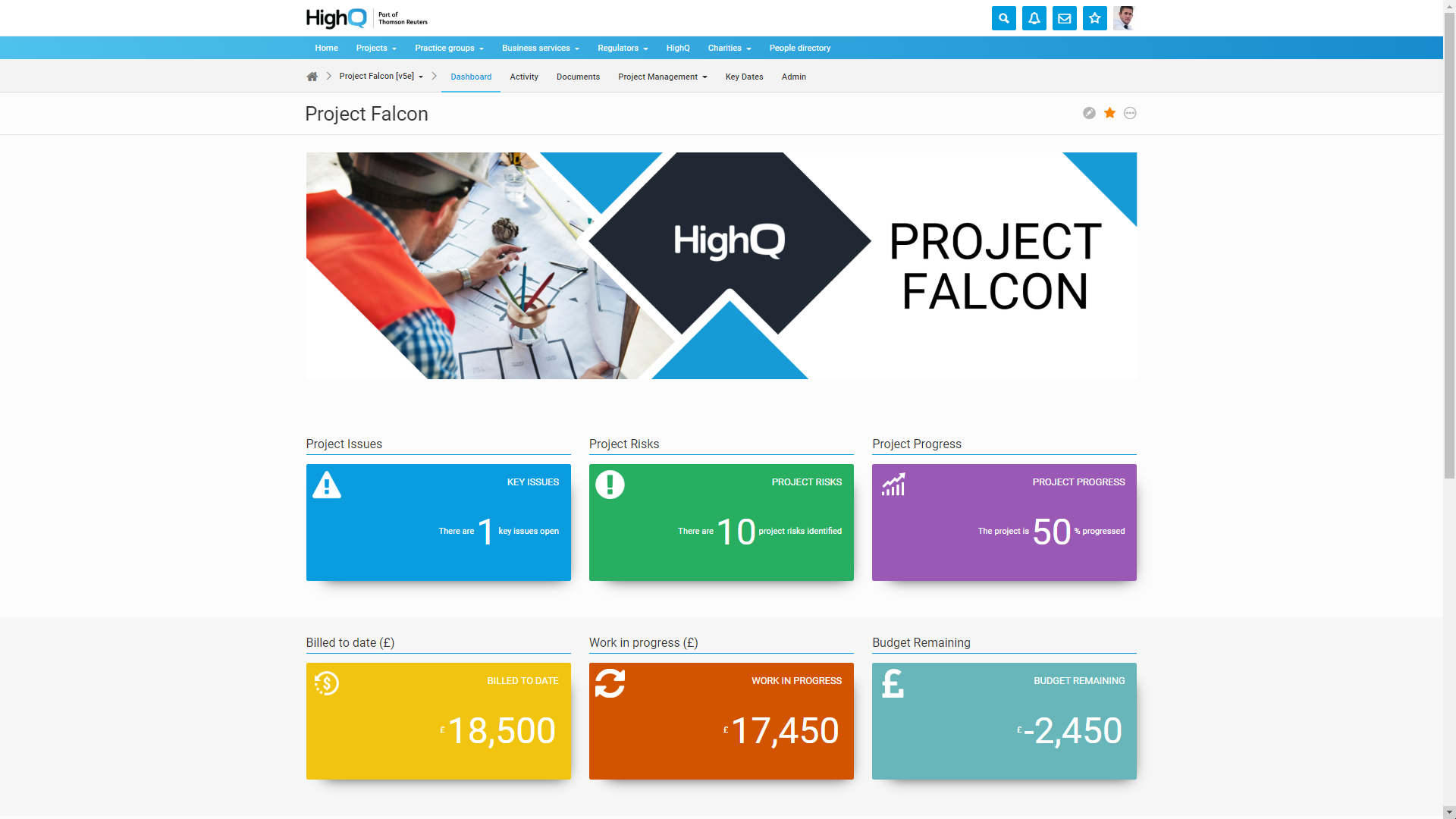A year after it acquired HighQ, the London-based enterprise collaboration and file-sharing platform for the legal industry, Thomson Reuters is today announcing an upgraded version of the platform, which it says is the most significant HighQ release to date, with more than 100 new features and enhancements.
Among the most notable features of this new version, HighQ 5.4, is integration with two other TR products — the contract automation software Contract Express and the legal operations software Legal Tracker. The release also adds AI-driven contract analysis, new mobile applications, and more.

Although I have not seen this new version, TR says that Contract Express is now natively integrated within HighQ and now powers its document automation. Contract Express templates can now be associated with HighQ sites and accessed to generate documents. Documents and associated data are stored natively in HighQ, enabling the user to integrate and establish workflows, collaborate, co-author, and utilize new data-visualization capabilities.
HighQ 5.4 also gets an AI-driven contract analysis engine, TR says. Users can compare hundreds of documents against a model form to quickly identify which agreements present the most deviation from the standard form. Documents, including contracts, can be clustered based on their similarity to quickly identify groups of documents. The contract analysis engine also can be trained to recognize new clauses, allowing customers to build their own clause banks.

HighQ 5.4 also allows customers to manage projects and processes more effectively. One way 5.4 does this is with the introduction of sub-tasks, which strengthens project management capabilities for complex projects. Also new is the ability to create rules that trigger upon completion of a task, such as setting a rule to create another task or re-assign that task to someone else.
Integration of Legal Tracker
With this new version, Legal Tracker can be integrated with the document management capabilities in HighQ. This puts enhanced tools for work product collaboration in the hands of in-house teams, TR says, increasing productivity. Legal departments can use HighQ document management to securely store and search documents and emails, control and compare versions, view audit history, and access documents offline without having to leave standard productivity tools.
For client portal developers, this new version provides tools and templates that will enable them to deploy sites of all levels of sophistication more quickly and with new designs. It offers a number of customization and permission options to govern the information customers make accessible to different groups on the same site, including an ability to create different home page structures and dashboards based on the group, while still allowing granular permissions.
This can be useful, TR says, when dealing with multiple third parties who need to review information, for example, when managing deal rooms during the M&A process.
 Robert Ambrogi Blog
Robert Ambrogi Blog